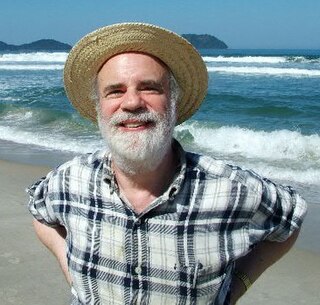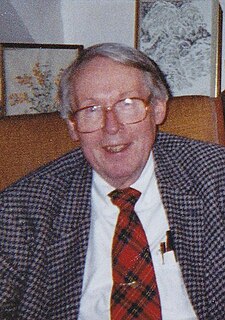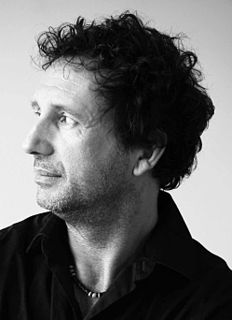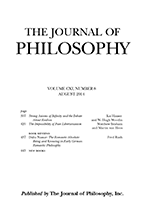| |||
|---|---|---|---|
2001 in philosophy
| |||
|---|---|---|---|
2001 in philosophy
Herbert Alexander Simon was an American economist, political scientist and cognitive psychologist, whose primary research interest was decision-making within organizations and is best known for the theories of "bounded rationality" and "satisficing". He received the Nobel Prize in Economics in 1978 and the Turing Award in 1975. His research was noted for its interdisciplinary nature and spanned across the fields of cognitive science, computer science, public administration, management, and political science. He was at Carnegie Mellon University for most of his career, from 1949 to 2001.

Saul Aaron Kripke is an American philosopher and logician in the analytic tradition. He is a Distinguished Professor of Philosophy at the Graduate Center of the City University of New York and emeritus professor at Princeton University. Since the 1960s, Kripke has been a central figure in a number of fields related to mathematical logic, modal logic, philosophy of language, philosophy of mathematics, metaphysics, epistemology, and recursion theory. Much of his work remains unpublished or exists only as tape recordings and privately circulated manuscripts.

David John Chalmers is an Australian philosopher and cognitive scientist specializing in the areas of philosophy of mind and philosophy of language. He is a Professor of Philosophy and Neural Science at New York University, as well as co-director of NYU's Center for Mind, Brain and Consciousness. In 2013, he was elected a Fellow of the American Academy of Arts & Sciences.
A causal theory of reference is a theory of how terms acquire specific referents based on evidence. Such theories have been used to describe many referring terms, particularly logical terms, proper names, and natural kind terms. In the case of names, for example, a causal theory of reference typically involves the following claims:

20th-century philosophy saw the development of a number of new philosophical schools—including logical positivism, analytic philosophy, phenomenology, existentialism, and poststructuralism. In terms of the eras of philosophy, it is usually labelled as contemporary philosophy.

Kaarlo Jaakko Juhani Hintikka was a Finnish philosopher and logician.
A mediated reference theory is any semantic theory that posits that words refer to something in the external world, but insists that there is more to the meaning of a name than simply the object to which it refers. It thus stands opposed to the theory of direct reference. Gottlob Frege is a well-known advocate of mediated reference theories. Similar theories were widely held in the middle of the twentieth century by philosophers such as Peter Strawson and John Searle.
A direct reference theory is a theory of language that claims that the meaning of a word or expression lies in what it points out in the world. The object denoted by a word is called its referent. Criticisms of this position are often associated with Ludwig Wittgenstein.

Stephen Roy Albert Neale is a British philosopher and specialist in the philosophy of language who has written extensively about meaning, information, interpretation, and communication, and more generally about issues at the intersection of philosophy and linguistics. Neale is currently Distinguished Professor of Philosophy and Linguistics and holder of the John H. Kornblith Family Chair in the Philosophy of Science and Values at the Graduate Center, City University of New York (CUNY).

The Journal of Philosophy is a monthly peer-reviewed academic journal on philosophy, founded in 1904 at Columbia University. Its stated purpose is "To publish philosophical articles of current interest and encourage the interchange of ideas, especially the exploration of the borderline between philosophy and other disciplines." Subscriptions and online access are managed by the Philosophy Documentation Center.
A priori and a posteriori are Latin phrases used in philosophy to distinguish types of knowledge, justification, or argument by their reliance on empirical evidence or experience. A priori knowledge is that which is independent from experience. Examples include mathematics, tautologies, and deduction from pure reason. A posteriori knowledge is that which depends on empirical evidence. Examples include most fields of science and aspects of personal knowledge.

Naming and Necessity is a 1980 book with the transcript of three lectures, given by the philosopher Saul Kripke, at Princeton University in 1970, in which he dealt with the debates of proper names in the philosophy of language. The transcript was brought out originally in 1972 in Semantics of Natural Language, edited by Donald Davidson and Gilbert Harman. Among analytic philosophers, Naming and Necessity is widely considered one of the most important philosophical works of the twentieth century.
1972 in philosophy
1980 in philosophy
1977 in philosophy
John Patton Burgess is an American philosopher. He is John N. Woodhull Professor of Philosophy at Princeton University where he specializes in logic and philosophy of mathematics.
The Faculty of Philosophy, University of Oxford was founded in 2001. It is part of Oxford's Humanities Division. The faculty is located next to Somerville College on Woodstock Road. As of 2020, it is ranked 1st in the UK and 2nd in the English-speaking world by the Philosophical Gourmet Report, as well as 2nd in the world by the QS World University Rankings. It is additionally ranked first in the UK by the Complete University Guide, the Guardian, the Times, and the Independent.
2013 in philosophy

Eva Picardi was an Italian philosopher. Picardi's contributions have been in analytic philosophy and linguistics.